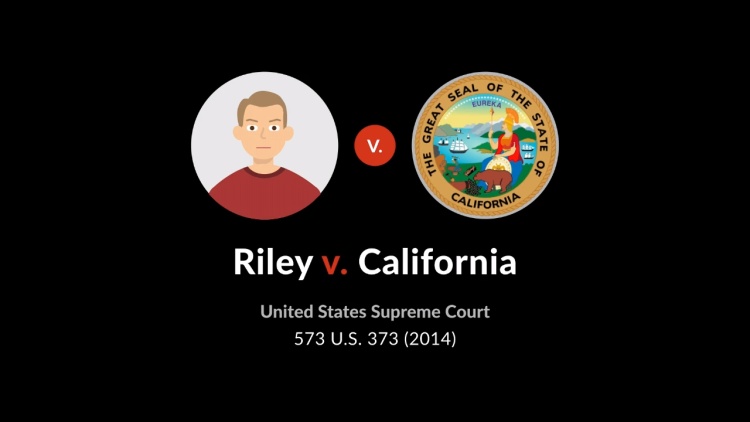Riley v. California
United States Supreme Court
134 S. Ct. 2473 (2014)
- Written by Robert Schefter, JD
Facts
Police searched David Riley (defendant) incident to an arrest and seized his smartphone from his pocket. The police searched the smartphone and used items found on it as evidence at Riley’s trial on shooting charges brought by the State of California. Riley was convicted. On appeal, the state court of appeal determined that the warrantless search was a valid search incident to arrest. In a consolidated case, Brima Wurie (defendant) had his flip phone seized from his person incident to an arrest for drug sales. Police used items seized from the flip phone to secure a search warrant for Wurie’s residence. The district court admitted evidence found in the residence at trial, but on appeal, the federal court of appeals held that the evidence was the fruit of an illegal search of the flip phone. The United States Supreme Court granted certiorari on both cases.
Rule of Law
Issue
Holding and Reasoning (Roberts, C.J.)
Concurrence (Alito, J.)
What to do next…
Here's why 904,000 law students have relied on our case briefs:
- Written by law professors and practitioners, not other law students. 47,100 briefs, keyed to 995 casebooks. Top-notch customer support.
- The right amount of information, includes the facts, issues, rule of law, holding and reasoning, and any concurrences and dissents.
- Access in your classes, works on your mobile and tablet. Massive library of related video lessons and high quality multiple-choice questions.
- Easy to use, uniform format for every case brief. Written in plain English, not in legalese. Our briefs summarize and simplify; they don’t just repeat the court’s language.





